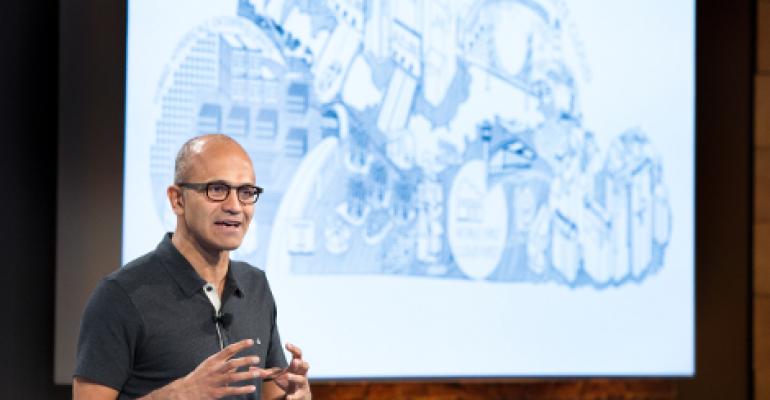Microsoft is planning to launch a data center in Australia that will support the first Azure cloud availability region in the country next week.
The company plans to have 19 Azure regions by the end of the year – up from the current 15. The cloud’s other Asia-Pacific locations are in Japan, Singapore, and Hong Kong.
Microsoft CEO Satya Nadella and Scott Guthrie, executive vice president of the company’s Cloud and Enterprise business, made the announcement during a company event in San Francisco Monday. Along with the new cloud region they announced numerous other products, all aimed at dominating the global cloud services market.
As Guthrie put it in a blog post, Microsoft wants to deliver “the industry’s complete cloud – one for every business, every industry and every geography.”
The company said in September it would launch Azure data centers in India. There have also been anonymously sourced news reports that revealed its plans to expand physical cloud footprint in Germany and South Korea.
In addition to full-fledged data centers, Microsoft expands cloud presence through agreements with colocation providers and network carriers, which offer private network links between their customers’ infrastructure and Azure data centers.
Azure in a Dell box
Guthrie and Nadella announced new Dell-made servers that come packed with all the Microsoft software necessary to deploy Azure-like cloud infrastructure in customers’ own data centers. Called Cloud Platform System, the serves combine Azure, Windows Server and System Center.
The systems are meant to make it easier to stand up hybrid cloud infrastructure, which melds on-premise private cloud deployments with public Azure services. “The Microsoft Cloud Platform System, powered by Dell, is the next step in hybrid cloud and brings all our learnings running Azure to your data center,” Guthrie wrote.
Hybrid cloud is an important section of the market for providers that want to serve security- and compliance-conscious enterprise customers. VMware, Microsoft’s major rival in the space, has an offering called vCloud Air (formerly vCloud Hybrid Cloud Service) that promises seamless integration of customers’ on-premise VMware environments with its public cloud services.
CoreOS and Cloudera coming to Azure
Another piece of Azure news was a partnership with Cloudera, an Intel-backed Hadoop distribution company, and with CoreOS, one of the cloud world’s hottest startups with a Linux-based operating system that enables companies to set up and operate clusters of commodity servers the same way web-scale data center operators like Google and Facebook do.
CoreOS is now available as one of the types of OS images customers can deploy on Azure, and Cloudera’s data management platform, called Cloudera Enterprise, will be Azure-certified by the end of 2014, Microsoft expects.
The news follows last week’s announcement of a partnership with Docker, another cloud-startup darling, which provides products built around its eponymous open source application container technology.
New high-performance cloud VMs and cloud storage
Finally, the execs announced a new VM flavor available on Azure, called the G-series, and premium cloud storage. Both are for workloads with high performance requirements. Microsoft said they were for customers with “the most demanding workloads in the cloud.”





